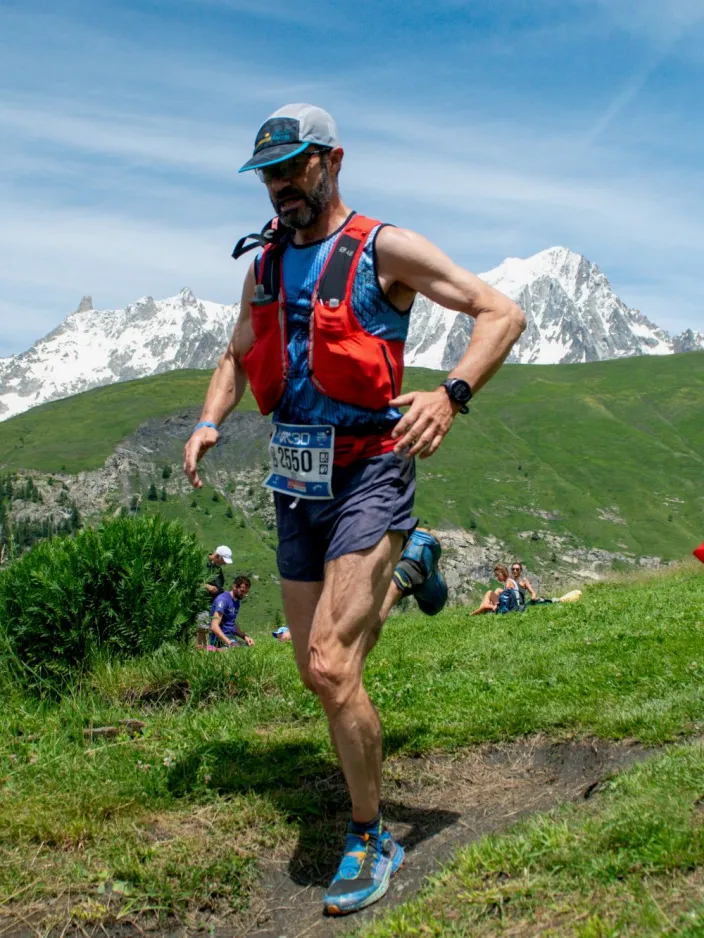
The jurist and the mountains
He has been defined as the notary of the mountain peaks. Notary and professor, we might add, and no definition could be more apt. Mario Notari, full professor of company and business law at the Department of Legal Studies at Bocconi University and head of a notary office in Milan, is in fact a great lover of the mountains and all sports, absolutely all of them, that can be practiced among peaks, woods, steep valleys, and ski slopes. “I practice free climbing, rock and ice climbing, ski mountaineering, cross-country skiing, ice climbing, sky running, and ultra trail running,” says Notari, who is also a ski instructor, “disciplines that I have alternated over the years, also trying to adapt to my advancing age and the changing climate.” The latter plays a particularly important role in high mountains, where the disastrous effects of climate change are most evident: “I used to do mountaineering, especially at high altitudes, so climbing and ascension, but in recent years I've put it aside a bit because the mountains at high altitudes are disintegrating,” says Notari. “The fact that the isotherm, the 0°C line that used to be at 3,000 meters, is now at 5,000 meters, means that the mountain range between 3,000 and 5,000 meters is melting. So everything is crumbling down and we are faced with a much more dangerous mountain.”
Hence the decision to devote more time to running, in the mountains but not only, such as participating in the Valencia marathon, for example, with a very impressive time of 3 hours and 12 minutes. But mountain running is his real passion, short races, as he calls them, of 30 or 40 kilometers, or real feats, such as the Mont Blanc ultra trail he will compete in at the end of August: “It will be a 170-kilometer race, with 11,000 meters of elevation gain, lasting about 30 or 40 hours depending on speed. In races like these, I'm looking for performance, not competitive results. The race is more against yourself than against your opponents, against your own mind, against your own will.” In such long competitions, you often find yourself alone with your thoughts. What does Mario Notari think about when he runs? “In short races, your concentration is entirely focused on the race itself, on your movements, on the opponent you want to catch up with and overtake. In long races, it's not like that, you think about other things too. I've had some great professional insights while running, for example. No interruptions, no phone calls, no distractions: that's how the best ideas come about.”
Recently, however, Mario Notari has also achieved some important results in competition: “I won, in my category, the Marathon du Mont Blanc, over the classic distance of 42 kilometers and 195 meters, and then another race in Courmayeur over 30 kilometers with an elevation gain of about 2,000 meters.” However, the challenges never end and, if they don't come along by themselves, you go out and look for them: "There are still things I can do in the mountains, I'm always looking for something new. The latest in this regard is biathlon, which I'm competing in. I train in the Aosta Valley and my teammates are between 16 and 18 years old. How do they look at me? At first they were a little bewildered, but now they understand the spirit of my approach.”
In the classroom, Mario Notari never talks about his second (or third?) life, but something brings him there anyway: “Yes, the concept of step-by-step. In the mountains, you can't tackle a 2,000-meter climb unless you take it one step at a time, focusing only on what's in front of you. So in the classroom, we have to focus on one topic at a time, and once we've mastered it, we move on to the next one. An 800-page textbook is daunting when you look at it as a whole, but when you tackle it one piece at a time, it's not so bad."